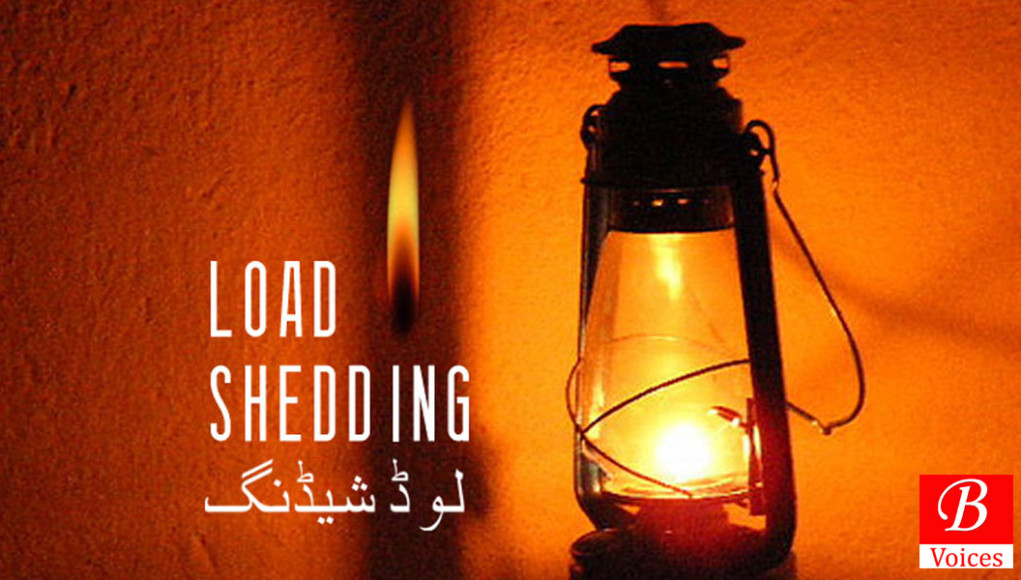Ayaz Ahmed
Energy is the most important need of a sovereign country in the contemporary world. But, mineral rich Balochistan and its much-touted deep port city and upcoming regional trade hub, Gwadar, are plagued by perpetual energy crisis owing to the scarcity of clean, efficient, affordable and indigenous energy.
According to available media reports, due to the acute gap between demand and supply, some interior districts in the province are facing up to 22 hours of load shedding. The provincial capital, Quetta, is beset with 12-hour-long outages. According to local leaders and journalists, Gwadar city is also plagued by 14 to 16 hours of scheduled load-shedding. Sometimes, Gwadar remains without electricity for three to four days due to technical faults, torrential rains or militants’ attacks on the long transmission line.
As per available data, total electricity demand of Balochistan is around 1,650 megawatt (MW). However, the electric grid network in the province has the capacity to transmit only up to 650 MW of electricity. On account of line losses, theft, diversion of power to other provinces and unchallengeable dominance of other provinces on the Ministry of Power and Water, Balochistan does not acquire the stipulated amount of power. It’s believed that the power supply to the province is just around 300-400 MW.”
Over 2,200 MW of electricity is produced in Balochistan by the four power plants but the province gets only 400 MW
Intriguingly, the power produced by Balochistan is sufficient enough to provide electricity to the whole province. But much of this electricity goes to the national grid and is provided to the rest of the country. Over 2,200 MW of electricity is produced in Balochistan by the four power plants but the province gets only 400 MW. The rest of the electricity produced in Balochistan is supplied to the national electric grid, such sort of injustice has no parallel in the world in which the central government keeps depriving a federating unit of its share of even needed energy.
Despite being Balochistan’s port city, Gwadar is also beset with unbearable load-shedding. Currently, Gwadar city is receiving 14 MW from the 70MW coming through a 400 km transmission line from Pishin in Iran`s Sistan-Balochistan province bordering Mand, Balochistan. The transmission line goes from Pishin to Mand, Turbat, Pasni, Panjgur and then Gwadar. But, Gwadar is still facing 14 to 16 hours of planned load shedding. Whenever transmission lines, fuses, poles, transformers, insulators and guy wire get disorder, the local people collect money and get them repaired.
Quetta Electric Supply Company’s (QESCO) workers always complain about the lack of resources to repair intermittent faults occur in the system. If the would-to-be mega city is bereft of an adequate supply of power, what would be the condition of other districts across the province?
It is a pity that Iran has not been paid for providing power since 2011. According to a report from a private TV channel, payments for the import of electricity have not been made to Iran since 2011. Such delay of payment does not bode well because Iran is intent on supplying more electricity to Balochistan.
The provincial government has also utterly failed to crack down on massive theft of 75 MW of power. Many a consumer in Gwadar and its suburbs has installed illegal connections in collusion with QESCO employees. People in the periphery of Gwadar city are facing overbilling, and, therefore, a large number of them have left paying electricity bills. According to local councillors and journalists, QESCO employees do not read metres and send Rs. 2500 bill to all consumers. Those who have just one room and one bulb are forced to pay Rs. 2500 per month. Is this not the incompetence and failure of QESCO in terms of its primary responsibility?
Power scarcities are due to some lingering issues which Balochistan has been grappled with since the 1970s. The province has never seen a competent leadership capable of prioritising the energy crisis with seriousness. Moreover, the country’s reliance on expensive oil rather than renewable sources is further exacerbating this crisis. Furthermore, due to outdated and inefficient transmission lines and theft, around 20 percent power goes in vain in the province. Some experts also attribute the lack of energy conservation a major factor behind the lingering shortage of power.
As seen, looming energy crisis has brought about a plethora of issues for the already neglected people of the province in setting up and running small level businesses. Massive load shedding has also destroyed the agriculture sector of the province and forced farmers to abandon their fruit orchards which are dried up because of non-availability of water. Power outages are also causing joblessness, widespread poverty and social unrest in the province.
Despite the increasing power outages, the provincial government seems reluctant and indifferent to taking up and solving the entrenched issue of power in the province. Arguably, without effectively resolving the swelling energy issues on an urgent basis, all planned development works will face a slew of stumbling blocks in Balochistan. The situation caused by lingering load shedding is rather alarming and needs prompt and prudent measures by the provincial government to produce or manage adequate amount of energy for both domestic and commercial users.
To resolve this energy shortage, the provincial government should diversify its approaches by relying on both renewable and non-renewable sources. The provincial setup should make the power ministry competent, responsive and accountable, and lay down stringent checks and balances on it in order to stop corruption and mismanagement. More small dams for hydropower should be constructed, and coal power plants need to be installed for production of required energy in the province. It is also required to teach people so that they conserve power to the maximum.
The PML-N led provincial government should seriously take the oft-repeated Iranian offer of 3,000 megawatts of electricity at a low price to end power crisis in Balochistan. Apart from this, since Iran has already increased the power supply to Gwadar from 70 MW to 200 MW and this process is nearly completed from the Iranian side, the Balochistan government ought to come forward and install necessary power equipment from the Iranian border to Gwadar. Before that, Iran should be paid for uninterruptedly providing electricity to Makran division for some years.
Writer is a featured columnist for Balochistan Voices
Share your comments!








